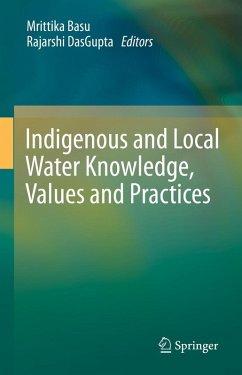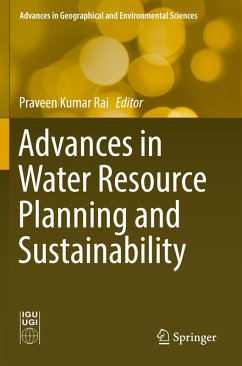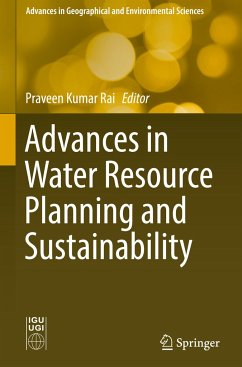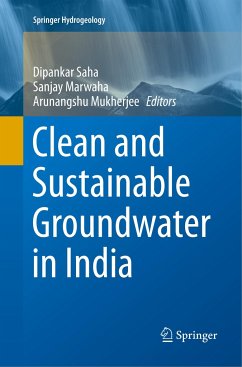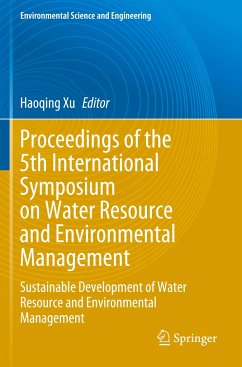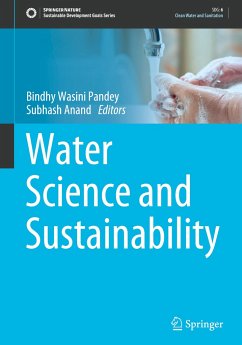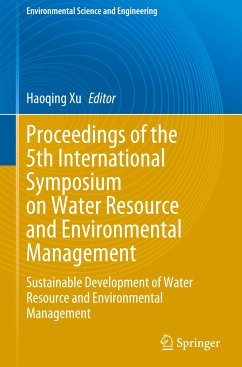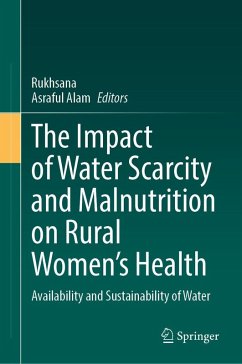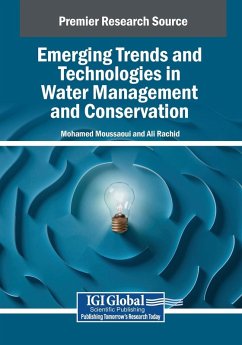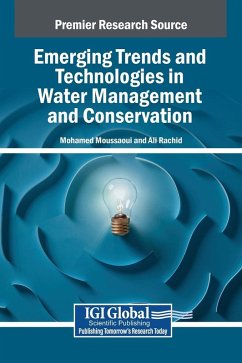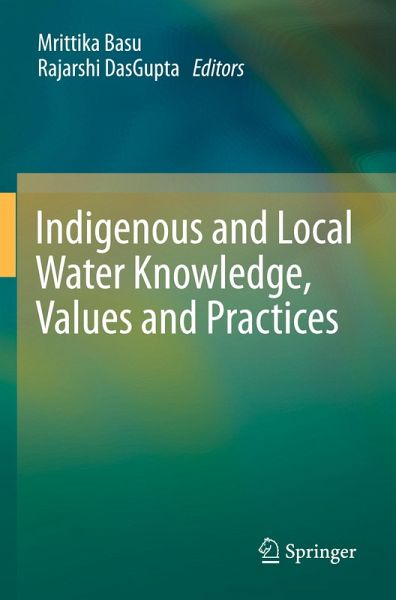
Indigenous and Local Water Knowledge, Values and Practices
Versandkostenfrei!
Versandfertig in 6-10 Tagen
113,99 €
inkl. MwSt.

PAYBACK Punkte
57 °P sammeln!
This book provides a knowledge base of the existing indigenous and local water knowledge, values, and practices, and how this water knowledge can be mainstreamed into the decision-making process. The book not only demonstrates the perks of using indigenous knowledge but also illustrates the barriers and gaps that should be considered while planning for mainstreaming traditional knowledge and values at a local scale. The chapters incorporate case studies from various parts of the world demonstrating how indigenous, and religious and cultural values of water have translated into water use and co...
This book provides a knowledge base of the existing indigenous and local water knowledge, values, and practices, and how this water knowledge can be mainstreamed into the decision-making process. The book not only demonstrates the perks of using indigenous knowledge but also illustrates the barriers and gaps that should be considered while planning for mainstreaming traditional knowledge and values at a local scale. The chapters incorporate case studies from various parts of the world demonstrating how indigenous, and religious and cultural values of water have translated into water use and conservation behavior among indigenous people ensuring resource sustainability over a long period of time. There has been global attention towards combining indigenous and local knowledge with new information and innovation to attain future water security. In this regard, this book is timely, relevant, and significant as it is the first attempt, as per the best of our knowledge, to publish a book that solely addresses indigenous and local knowledge, values, and practices regarding water management, quality monitoring, use, and conservation.
With increasing emphasis on the inclusion of indigenous and local knowledge into natural resource governance and conservation by international agencies like the Intergovernmental Science-Policy Platform on Biodiversity and Ecosystem Services (IPBES), the proposed book will significantly contribute to the existing knowledge base and demonstrate the importance of mainstreaming indigenous water knowledge and practices into water governance and decision making. The UN SDGs, recognizing the significance of indigenous knowledge systems, emphasized its inclusion in most aspects and principles of SDGs. Apart from direct links with SDGs like zero hunger (SDG 2), no poverty (SDG 1), and climate action (SDG 13), indigenous and local knowledge system is considered to be directly connected to clean water and sanitation (SDG 6). The book will be useful to researchers and students in the field of indigenous knowledge and education, water governance, community-level planning, and water sustainability. The book can be referred to for postgraduate courses and beyond, as well as policymakers, conservationists, non-governmental organizations, development practitioners, and local government officials.
With increasing emphasis on the inclusion of indigenous and local knowledge into natural resource governance and conservation by international agencies like the Intergovernmental Science-Policy Platform on Biodiversity and Ecosystem Services (IPBES), the proposed book will significantly contribute to the existing knowledge base and demonstrate the importance of mainstreaming indigenous water knowledge and practices into water governance and decision making. The UN SDGs, recognizing the significance of indigenous knowledge systems, emphasized its inclusion in most aspects and principles of SDGs. Apart from direct links with SDGs like zero hunger (SDG 2), no poverty (SDG 1), and climate action (SDG 13), indigenous and local knowledge system is considered to be directly connected to clean water and sanitation (SDG 6). The book will be useful to researchers and students in the field of indigenous knowledge and education, water governance, community-level planning, and water sustainability. The book can be referred to for postgraduate courses and beyond, as well as policymakers, conservationists, non-governmental organizations, development practitioners, and local government officials.



